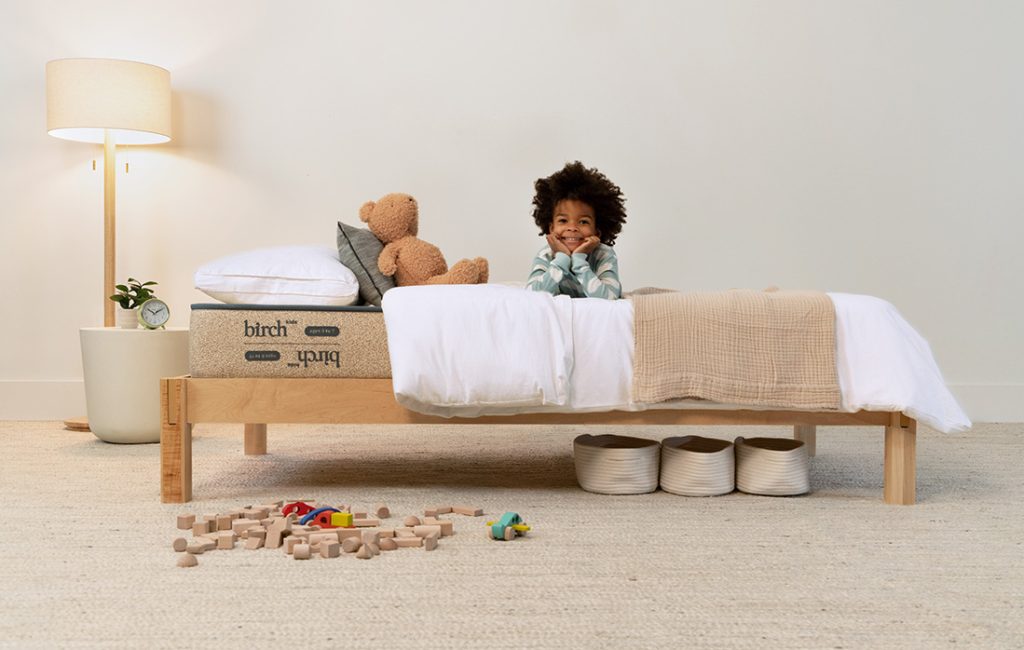
For kids, it’s one of the most necessary — if not dreaded — parts of the day. For parents and caregivers, it can’t come soon enough. But nap times for infants and preschoolers are for much more than a rest and recharge. Turns out, they might be critical for brain development.
The National Institutes of Health (NIH) is also curious about the hypothesis, as they granted $6.7 million to University of Massachusetts Amherst sleep scientist Rebecca Spencer. She’s a professor of psychological and brain sciences known for being an expert on all things napping. Now, she’s about to take a deep dive through two research studies, seeing just how important they are for the brain.
The specific theory she’s testing is whether short term memory areas of the brain, specifically in babies and younger children, are affected by nap transitions. The University predicts in their press release the findings will become the “gold standard of scientific evidence that emphasizes the importance of healthy sleep for young children as their brains develop.” (1) In addition, these guidelines will have specific effects on how daycares and schools structure their napping policies and schedules.
She was on the research team of a 2021 NIH study that concluded two naps per day, not just one, aids memory in babies who are nine months old, and that skipping the morning nap may impact afternoon nap physiology and memory. (2) In 2022, she answered the question of why some older preschoolers still nap, while some give it up earlier than their peers — it’s the brain, not age, that results in napping changes. (3)
In a press release on April 25, the university issued a release that the “unprecedented” research study is seeking more than 300 infant and preschooler participants. (1)
“The work we’ve been doing has always pointed to this interaction of sleep and brain development,” says Spencer in the press release. “We think that kids get ready to transition out of naps when the brain is big enough to hold all the information of the day until night-time sleep.”
She adds that she will be able to possibly intervene to help neurodiverse children who have autism and ADHD, for example, who have disrupted sleep patterns, with the new findings.
Spencer is a big fan of naps, and how they impact our memory making. “Naps are beneficial to everybody. Naps protect memory for everybody, no matter what age. Kids who are habitual nappers really need the nap. If they don’t nap, they get catastrophic forgetting. That’s the difference between habitual and non-habitual nappers — not how good is the nap, but how bad is staying awake,” Spencer shares in the release.
The study will happen in three parts, and parents interested in participating can learn more here. Parents trying to navigate the rough waters of nap transitions can learn more from this comprehensive guide on babies and sleep.
Sources
1. University of Massachusetts, Amherst; “UNPRECEDENTED RESEARCH PROBES THE RELATIONSHIP BETWEEN SLEEP AND MEMORY IN NAPPING BABIES AND YOUNG CHILDREN,” UMass-Amherst; https://www.umass.edu/news/article/unprecedented-research-probes-relationship-between-sleep-and-memory-napping-babies-and; April 25, 2024.
2. Mason GM, Kurdziel LBF, Spencer RMC. The memory benefits of two naps per day during infancy: A pilot investigation. Infant Behav Dev. 2021 Nov;65:101647. doi: 10.1016/j.infbeh.2021.101647. Epub 2021 Sep 13. PMID: 34530287; PMCID: PMC8627454.
3. University of Massachusetts, Amherst; “YOUNG CHILD’S BRAIN, NOT AGE, DETERMINES NAP TRANSITIONS, RESEARCH SUGGESTS,” UMass-Amherst; https://www.umass.edu/news/article/young-childs-brain-not-age-determines-nap-transitions-research-suggests; October 24, 2022.